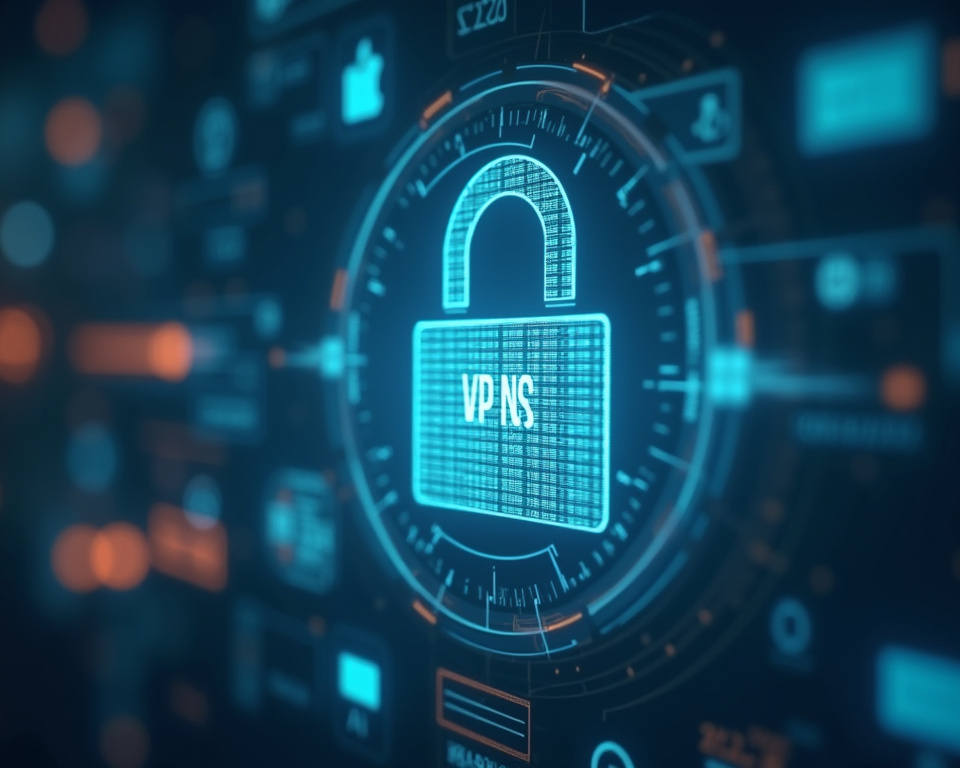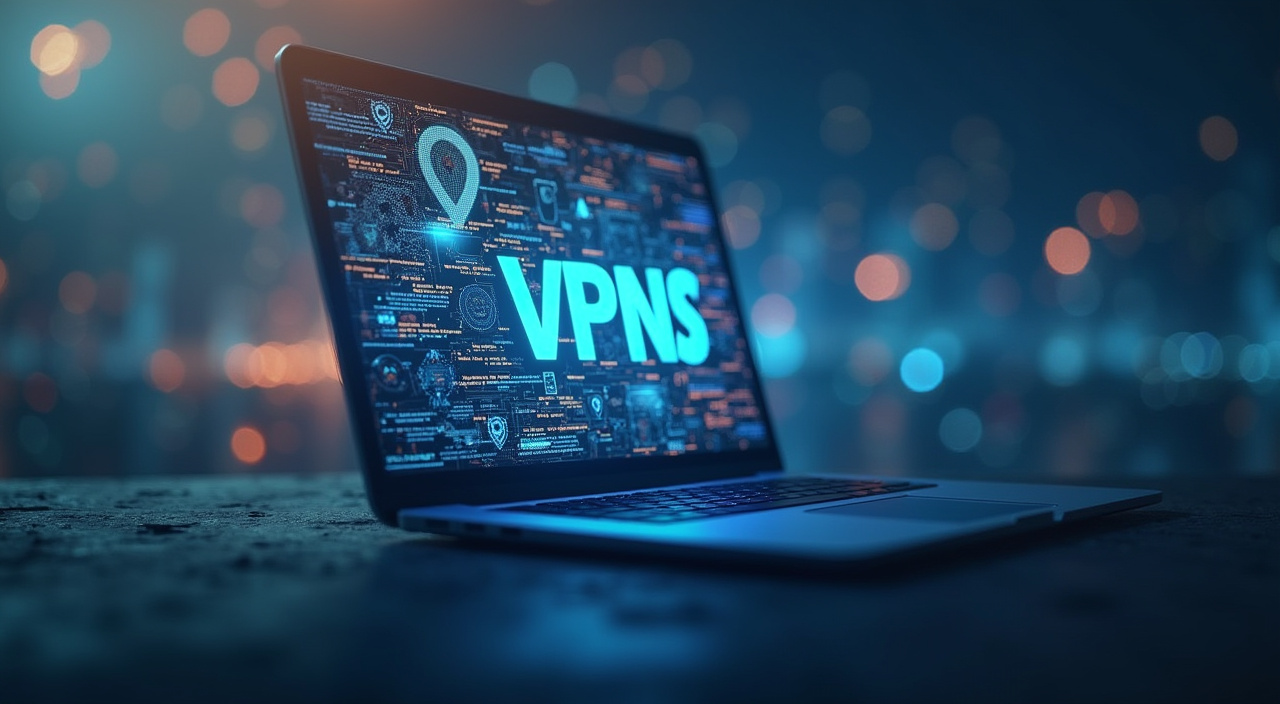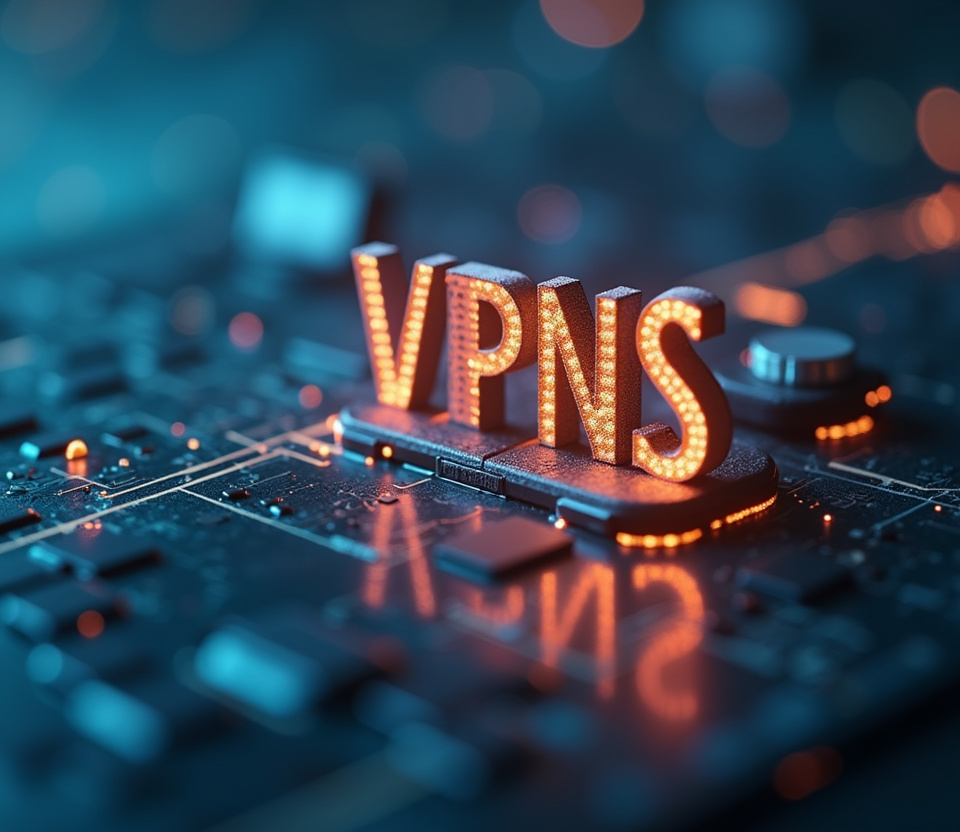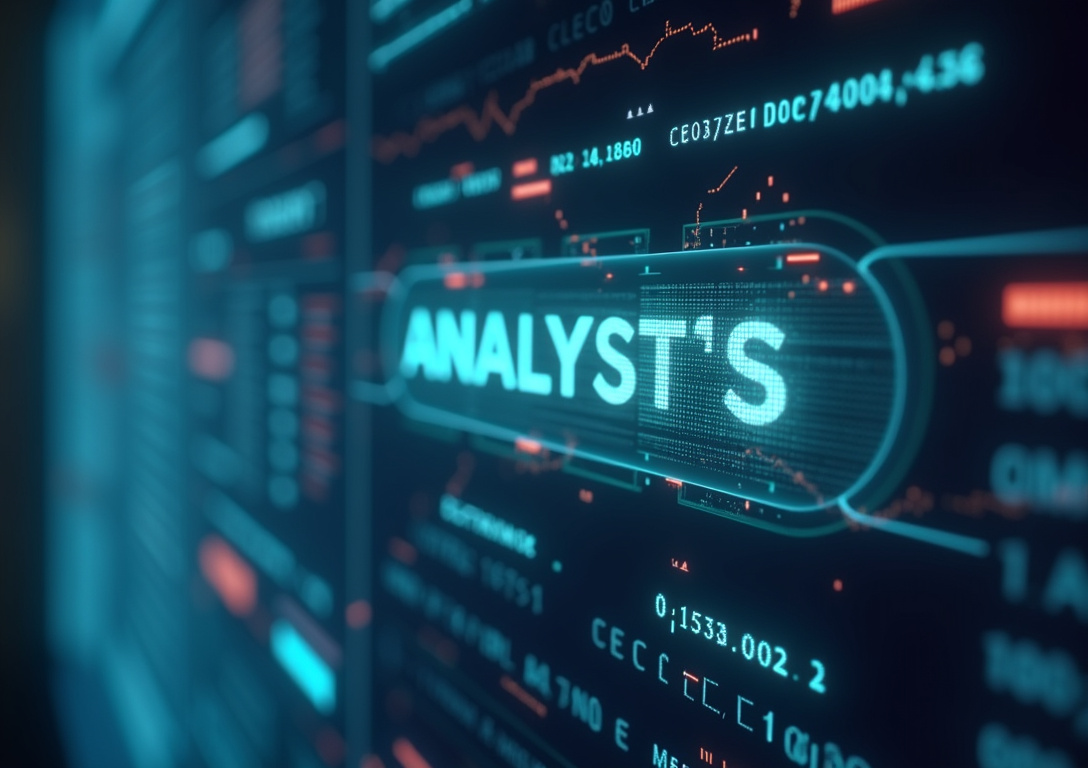VPNs for Renewable Investments: Protecting Financial Data
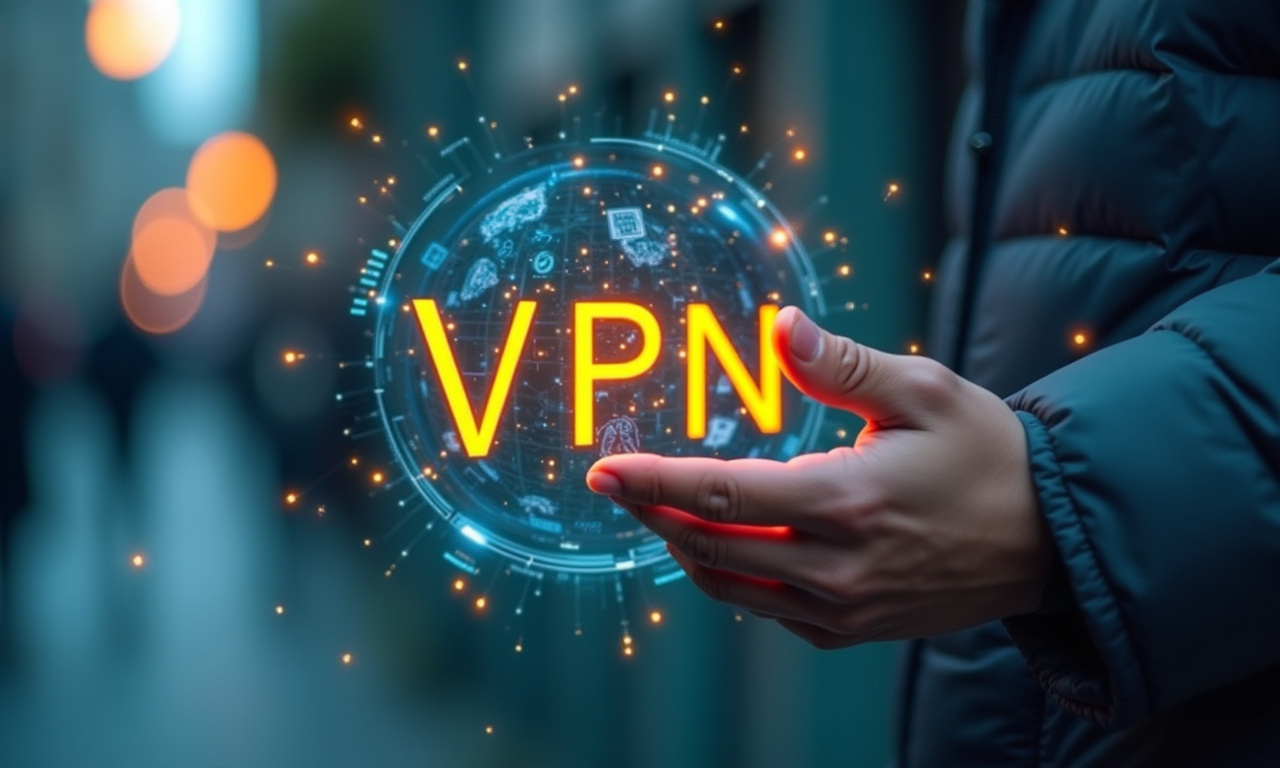
Table of Contents
financial data security
The escalating urgency to transition towards sustainable energy sources has spurred a surge in renewable energy investments. As capital flows into solar farms, wind turbine projects, hydroelectric plants, and other eco-friendly ventures, the stakes for have never been higher. Protecting sensitive financial information is no longer a mere compliance issue; it’s a fundamental requirement for maintaining investor confidence, ensuring project viability, and fostering sustainable growth within the sector.
The digital arteries of renewable energy finance pulsate with sensitive data, encompassing everything from detailed financial projections and legal contracts to proprietary technology specifications and confidential investor communications. This information is constantly exchanged between various stakeholders, including investors, project developers, government agencies, and technology providers, often across geographically dispersed locations. This intricate web of digital interactions creates a fertile ground for cyber threats, making renewable energy investments an attractive target for malicious actors seeking to exploit vulnerabilities and extract valuable financial data.
A single data breach can have devastating consequences, ranging from significant financial losses and reputational damage to project delays, regulatory penalties, and a chilling effect on future investments. The inherent complexity of renewable energy financing further compounds the security challenge. These projects typically involve intricate financial structures, often spanning multiple jurisdictions and currencies.
The transactions are high-value, the timelines can be extended, and the regulatory landscape is constantly evolving. This complexity demands a robust and adaptable security infrastructure that can effectively protect sensitive data throughout the entire investment lifecycle. Recognizing the critical need for enhanced security, Virtual Private Networks (VPNs) have emerged as essential tools for protecting and safeguarding in the renewable energy sector.
A VPN establishes a secure, encrypted tunnel for all internet traffic, shielding sensitive data from unauthorized access and providing a crucial layer of . By masking IP addresses and encrypting data transmissions, VPNs effectively thwart eavesdropping, data interception, and other malicious activities, ensuring that confidential financial information remains protected from prying eyes. In the context of renewable energy, where vast sums of money are often transferred across international borders, the ability of VPNs to provide secure and reliable communication channels is indispensable.
The increasing reliance on remote work arrangements also underscores the importance of VPNs. As distributed teams collaborate on renewable energy projects from various locations around the globe, VPNs provide a safe and secure way to access and share sensitive financial data. This ensures that employees can work productively without compromising the security of the organization.
Furthermore, the competitive nature of the renewable energy sector highlights the need for robust security measures. Protecting proprietary technology, competitive intelligence, and confidential business strategies is paramount for maintaining a competitive edge. VPNs can help safeguard these valuable assets by preventing unauthorized access and data leakage, ensuring that sensitive information remains protected from competitors.
By prioritizing through the strategic implementation of VPNs, renewable energy investors and project developers can demonstrate their commitment to responsible stewardship and build trust with stakeholders. This proactive approach not only mitigates financial risks but also contributes to the long-term sustainability and success of the renewable energy sector as a whole, paving the way for a cleaner and more secure energy future.
financial data security
The core function of a VPN in the context of renewable investments is to establish a secure, encrypted tunnel for all internet traffic. This tunnel effectively shields sensitive from unauthorized access, preventing eavesdropping, data interception, and other malicious activities. When a VPN is active, all data transmitted between a user's device and the VPN server is encrypted, rendering it unintelligible to anyone without the decryption key.
This is particularly crucial when accessing financial databases, conducting online transactions, or communicating with investors via email or messaging platforms. The encryption protocols used by VPNs vary in strength and complexity. Advanced Encryption Standard (AES) with a 256-bit key is widely considered the gold standard, providing virtually impenetrable security against brute-force attacks.
Other protocols, such as OpenVPN and WireGuard, offer a balance of security and performance, making them suitable for various applications. Understanding the nuances of these protocols is essential for selecting a VPN that meets the specific security requirements of a renewable energy investment firm. Beyond encryption, VPNs also offer a critical layer of by masking the user's IP address.
An IP address is a unique identifier that can be used to track a user's online activity and location. By routing traffic through a VPN server, the user's real IP address is hidden, replaced by the IP address of the VPN server. This makes it significantly more difficult for third parties to track the user's online behavior or identify their physical location.
This is particularly important for protecting the identities of investors and preventing targeted attacks. Moreover, a VPN can help circumvent geographical restrictions and censorship, allowing investors to access financial data and from anywhere in the world. This is particularly relevant for renewable energy projects that operate across multiple countries and regions.
By connecting to a VPN server in a specific location, users can bypass geo-restrictions and access content that would otherwise be unavailable. This is essential for conducting international transactions, accessing research data, and collaborating with partners across borders. Furthermore, VPNs can enhance the security of public Wi-Fi connections.
Public Wi-Fi hotspots are often unsecured, making them vulnerable to eavesdropping and data theft. When connecting to a public Wi-Fi network, it's essential to use a VPN to encrypt all traffic and protect sensitive information. This is particularly important for investors who travel frequently and need to access financial data from various locations.
Imagine an investor attending a renewable energy conference and needing to review critical financial documents while using the hotel's Wi-Fi. Without a VPN, their data could be vulnerable to interception by malicious actors on the same network. A VPN provides a secure tunnel, protecting their data and ensuring the confidentiality of their communications.
The implementation of a also helps to maintain the integrity of . By encrypting all communications, VPNs prevent unauthorized access to sensitive information exchanged between investors, project developers, and other stakeholders. This is particularly important when discussing confidential financial strategies, negotiating contracts, or sharing proprietary project information.
Maintaining trust and confidentiality is paramount in the financial world, and a VPN helps to uphold these principles. In choosing a VPN solution for these needs, a "no logs" policy is key. Some VPN providers store logs of user activity, which could potentially be accessed by third parties or used to track user behavior.
Opting for a VPN provider with a strict "no logs" policy ensures that user activity is not recorded or stored, providing an additional layer of and security. A robust set of security features and the ability to secure multiple devices are also key when selecting a VPN for finance.
VPN for finance
The specific applications of VPNs in renewable energy investments are diverse and far-reaching. One critical area is securing remote access to financial systems and databases. Renewable energy projects often involve teams of professionals working remotely, including financial analysts, engineers, and project managers.
A provides a secure channel for these individuals to access sensitive financial data, ensuring that only authorized personnel can view and modify critical information. This is particularly important for preventing insider threats and protecting against data breaches. Imagine a financial analyst accessing a project's financial model from their home office.
Without a VPN, their connection could be vulnerable to eavesdropping, potentially exposing sensitive financial data to unauthorized individuals. A VPN encrypts their connection, ensuring that their access to the financial model is secure. Another key application of VPNs is securing .
Renewable energy projects often involve complex negotiations, financial transactions, and sensitive internal communications. A VPN ensures that all communication channels are encrypted, preventing eavesdropping and protecting confidential information. This includes email, instant messaging, video conferencing, and other forms of online communication.
Consider a scenario where investors are discussing a potential funding round for a new solar farm. Their email communications contain sensitive financial projections and details of the investment terms. Without a VPN, these emails could be intercepted, potentially giving competitors an unfair advantage or exposing the investors to financial risks.
A VPN encrypts their email traffic, safeguarding their communications and protecting their sensitive information. Furthermore, VPNs can be used to protect against man-in-the-middle attacks. In a man-in-the-middle attack, a malicious actor intercepts communications between two parties, posing as one of the parties to gain access to sensitive information.
VPNs can prevent these attacks by encrypting the communication channel, making it impossible for the attacker to intercept and decrypt the data. This is particularly important when conducting online financial transactions or sharing confidential documents. Protecting is also crucial when dealing with regulatory compliance.
Renewable energy projects are subject to various regulations, including data privacy laws and financial reporting requirements. A VPN can help organizations comply with these regulations by ensuring that sensitive data is protected and accessed only by authorized personnel. For instance, a project developer may be required to comply with data privacy laws when collecting and processing personal information from investors.
A VPN can help protect this information by encrypting data transmissions and masking IP addresses, ensuring compliance with privacy regulations. VPNs also play a vital role in protecting intellectual property. Renewable energy projects often involve innovative technologies and proprietary designs.
A VPN can help safeguard this intellectual property by preventing unauthorized access and data leakage. For example, a company developing a new wind turbine technology may use a VPN to protect its design documents and research data from competitors. Another lesser considered need of renewable investment is the ability to secure IoT – Internet of Things.
Many new farms and environmental projects are increasingly managed by IoT devices that communicate sensitive data, such as power consumption and real time usage data. These devices must be protected by securing them with a VPN that can encrypt data and protect against hackers and third party spying. Overall, the applications of VPNs in renewable energy investments are multifaceted and essential for protecting sensitive financial data, ensuring secure communication, and maintaining regulatory compliance.
By implementing a robust VPN solution, organizations can mitigate financial risks, protect their intellectual property, and foster sustainable growth in the renewable energy sector.
renewable investment VPN
Choosing the right service requires a thorough evaluation of several key factors. It's not simply about opting for the cheapest option; it's about selecting a provider that offers a robust combination of security, performance, reliability, and . One of the most critical factors to consider is the offered by the VPN provider.
Look for providers that utilize strong encryption protocols, such as AES-256, and offer advanced security features like a kill switch, which automatically disconnects your internet connection if the VPN connection drops, preventing data leakage. Also, consider whether the VPN offers protection against DNS leaks, which can expose your browsing activity even when connected to a VPN. The provider should also have a proven track record of security, so check for independent security audits and certifications.
Another primary criterion is the VPN's logging policy. A reputable VPN provider should have a strict "no-logs" policy, meaning that they do not collect or store any information about your online activity, including your browsing history, IP address, or connection timestamps. This ensures that your is protected and that your data cannot be accessed by third parties, even if the VPN provider is compelled to disclose information by law enforcement.
Carefully review the VPN's privacy policy to understand what data they collect and how they use it. Another importat key is the network speed and reliability. A slow or unreliable VPN connection can significantly impact productivity and hinder the ability to conduct time-sensitive financial transactions.
Look for a VPN provider with a large network of servers located in various countries, as this can help ensure fast and stable connections. Also, consider the VPN's bandwidth limits. Some providers impose bandwidth limits, which can restrict your ability to transfer large amounts of data.
Choose a provider that offers unlimited bandwidth to avoid any limitations on your data usage. Evaluate the VPN's compatibility with various devices and operating systems. Renewable energy professionals often use a variety of devices, including laptops, smartphones, and tablets.
Ensure that the VPN provider offers apps for all of the devices you use, and that their apps are easy to use and configure. Also, consider whether the VPN provider offers support for multiple simultaneous connections, allowing you to protect all of your devices with a single account. Consider the level of customer support offered by the VPN provider.
If you encounter any issues with the VPN, it's important to have access to reliable and responsive customer support. Look for a provider that offers 24/7 customer support via email, live chat, or phone. Also, check the provider's website for FAQs, tutorials, and other resources that can help you troubleshoot issues on your own.
Think about the tools that are being used in your investment firm. Does the VPN have options for these third party platforms? Does the VPN interfere with your ability to screenshare or use your webcam during online meetings?
Be sure to fully test the VPN before rolling it out company wide. Finally, evaluate the price of the VPN service. VPN prices can vary significantly, so it's important to compare prices and features from different providers.
However, don't simply choose the cheapest option. Prioritize security, reliability, and privacy over price.
VPN for finance
The implementation of a VPN is not a one-time fix but rather an ongoing process that requires continuous monitoring, maintenance, and adaptation to evolving security threats. After selecting and deploying a for renewable energy investments, it's crucial to establish clear policies and procedures for its use. This includes defining who has access to the VPN, how it should be used, and what types of data should be protected.
Employees should be trained on how to use the VPN properly and understand its importance in protecting . Regular security audits should be conducted to assess the effectiveness of the VPN and identify any potential vulnerabilities. These audits should include penetration testing, vulnerability scanning, and a review of the VPN's configuration and logging policies.
Any identified vulnerabilities should be addressed promptly to prevent exploitation. The software and firmware should be kept up to date with the latest security patches. Software updates often include critical security fixes that address newly discovered vulnerabilities.
Failing to update the VPN can leave it vulnerable to attack. Automated update features if available, help keep the software and firmware of your solution up to date and secure. Monitor VPN logs and traffic patterns for suspicious activity.
Unusual traffic patterns, failed login attempts, or other anomalies could indicate a security breach. Implement intrusion detection and prevention systems and have a security expert review the logs regularly. Develop a robust incident response plan to address potential security breaches.
The plan should outline the steps to be taken in the event of a breach, including who to notify, how to contain the damage, and how to restore systems. Regularly test the incident response plan to ensure its effectiveness. Regularly review and update your VPN policies and procedures.
As the threat landscape evolves, it's important to adapt your security measures accordingly. Review the new VPN protocols and decide if any protocols should be changed. Stay informed about the latest security threats and vulnerabilities, and adjust your VPN configuration and security policies as needed.
Ensure employees using platforms are aware of potential phishing attempts of malware which also target financial data. By encrypting your connection, you can make it more difficult for an outside party to see your data and cause damage. Remember it is always important to stay vigilant when working with finances of any kind.
Encourage employees to use strong, unique passwords and enable multi-factor authentication (MFA) wherever possible. Strong passwords and MFA can help prevent unauthorized access to VPN accounts. Also, consider integrating the VPN with other security tools, such as firewalls, intrusion detection systems, and security information and event management (SIEM) systems.
This can provide a more comprehensive security posture and improve threat detection and response capabilities. By implementing these best practices, renewable energy investors can ensure that their VPN provides an effective and reliable layer of protection for their sensitive financial data. Remember that security is a continuous journey, not a destination.
By staying vigilant and adapting to evolving security threats, you can minimize your risk of data breaches and protect your renewable energy investments for the long term.
Stay Updated
Get the latest VPN news, tips, and exclusive deals to your inbox.
